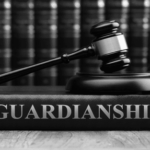Cher, the legendary pop icon, had been dazzling the world with her music and performances for decades. Her songs like “Believe”, “Woman’s World”, and “If I Could Turn Back Time” have become classics, known and loved by people of all ages. Like so many other average Americans, however, she has faced some tough challenges in her personal life. Namely, attempting to provide protection to her son, Elijah Blue Allman. Last week, Cher applied for a conservatorship for Elijah.
Now, Cher did not apply for a conservatorship in North Dakota, but what if she had? Let’s find out.
Understanding The “Why”
Why does Cher want to be a conservator of Elijah? According to court documents filed in Los Angeles Superior Court obtained by NBC News, People, Page Six, and USA today, Cher claims her youngest child is “substantially unable to manage his financial resources” and a conservator is needed “to protect Elijah’s property from loss or injury.” Cher alleges this inability to manage financial resources is directly tied to Elijah’s mental health and substance abuse issues. But why now?
Elijah is a beneficiary of a trust. Cher indicates in her petition that Elijah is entitled to regular payments from a trust fund. However, “given his ongoing mental health and substance abuse issues,” Cher is “concerned that any funds distributed to Elijah will be immediately spent on drugs, leaving Elijah with no assets to provide for himself and putting Elijah’s life at risk.” In short, Cher alleges that failure to intervene now, will result in using of assets in a way that is harmful to Elijah. So how would this be handled in North Dakota?
Understanding The “When”
In North Dakota, a conservatorship is deemed warranted whenever “The person is unable to manage the person’s property and affairs effectively for reasons such as mental illness, mental deficiency, physical illness, or disability, chronic use of drugs, or chronic intoxication.” N.D.C.C. § 30.1-29-01. So, in North Dakota a conservatorship is related to generally managing money or assets. If the conservatorship was filed in North Dakota, the judge assigned to the matter would need to determine, by clear and convincing evidence, whether Elijah’s mental health and substance abuse issues (if proven) are to such a degree that he is unable to properly manage his affairs without a conservatorship in place.
Note: This is in contrast to a guardianship in North Dakota where a person wants to provide care, supervision, and habilitation of the person. N.D.C.C. § 30.1-28-04(2)(c). For more information on guardianships in North Dakota please see the following blogs:
- What Happens If I Don’t Have a Health Care Directive
- The Battle Between a Power of Attorney and Guardianship! Which One Is Right For You?
- The Steps of a Guardianship
- Becoming A Certified Guardian Under Rule 59, Starting March 1, 2018
- I Have Been Appointed Guardian, Now What?
- How Can a Guardian Ad Litem Help Me With the Adult Guardianship Process
- Guardianship vs Conservatorship: What You Need and When
- The Rights of a Ward In A Guardianship
- Emergency Guardianships In North Dakota
Understanding The “How”
In North Dakota, a petition for conservatorship would be filed with the court. Once filed, the court would schedule a hearing. In addition, the interested parties (such as Elijah) would need to be given notice of the petitioning documents, hearing dates, etc. In addition, the Court may also appoint a guardian ad litem to advocate for the best interests of the person to be protected. In addition, the Court may appoint an expert examiner. An expert examiner is a person, usually a medical doctor or advanced practice registered nurse, who must examine the person to be protected and provide a medical opinion to the court. In addition, the court will hold a hearing on whether the conservatorship is warranted. At the hearing, the person to be protected is allowed to provide evidence and witnesses or cross examine individuals for his or her defense.
Is This Process Right For Me?
Unfortunately, while only thus far alleged in Cher’s conservatorship of her son, substance abuse is a growing problem in the United States. Since 2000, approximately 700,000 individuals have died of drug overdoses. If you have a loved one who is struggling with substance abuse, mental health issues, or physical or other medical issues, ask yourself: 1) whether the person has the ability to make well informed decisions concerning their finances; 2) whether the person has the ability to make well informed decisions concerning their personal needs (such as medical, home, or working needs); and 3) whether failing to intervene in the person’s life will put the person at risk of further harm to themselves. If your answer is yes to any of these questions, then I would strongly recommend you speak with an attorney to see if a conservatorship, guardianship, and or power of attorney may be appropriate in your situation.
If you are in need of an attorney to help you navigate through caring for your loved one, please contact us!










